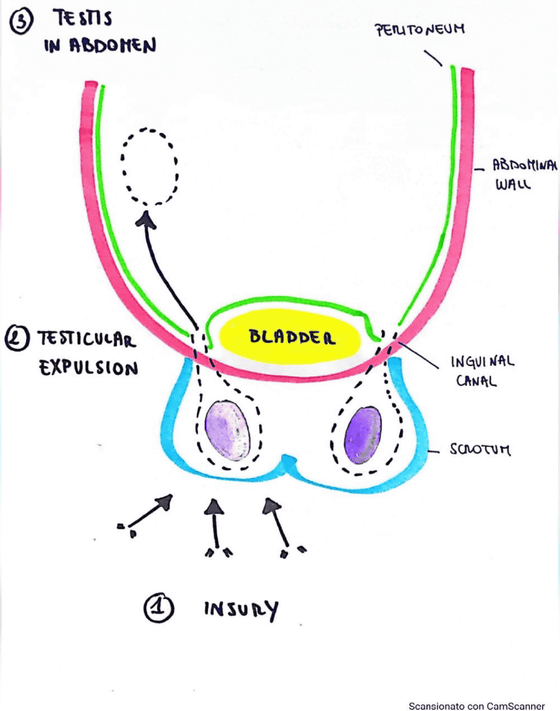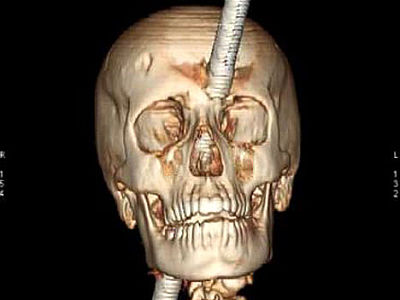Motorcycle accident causes man's testicles to be pushed up into abdomen

In rare cases,
Traumatic testicular dislocation in the abdomen: diagnosis and management | BMJ Case Reports
https://casereports.bmj.com/content/16/9/e254530

Motorcycle crash dislocated a man's testicle into his abdomen | Live Science

This case was published on September 26, 2023 in the academic journal ``BMJ Case Reports'' that compiles case reports.
According to the doctor in charge, the right testicle of the man who was involved in the motorcycle accident was pushed out from

Testicular dislocation is extremely rare due to trauma, and approximately 80% of cases occur in men in their mid-20s who have been involved in a motorcycle accident. Among them, it seems that in about 6% of cases, the testicles reach the abdomen, as in this case.
In this case, doctors first drained the blood that had accumulated in the groin area and warmed the testicles, which had been starved of oxygen, until they returned to their normal color. After that, the right testicle, which had moved to the abdomen, was surgically returned to its original position through a surgery called ``orchiopexy''.
Orchiopexy may also be used in children with congenital defects in which the testicles do not descend to their normal position during early development.
Testicular dislocation is difficult to detect, and there have been cases in the past that went unnoticed for up to a year. Prompt decision-making is needed, the authors say, because if it's noticed too late, it can have serious implications for fertility and hormone production.
In this case as well, the attending physician was slightly late in noticing testicular dislocation, and initially focused on managing active bleeding. However, a CT scan showed that the testicle had moved to the abdomen, and a procedure was performed.
The man's testicles returned to normal within six months and showed no signs of damage to vital functions such as hormones or semen production.
Related Posts:
in Note, Posted by logc_nt







